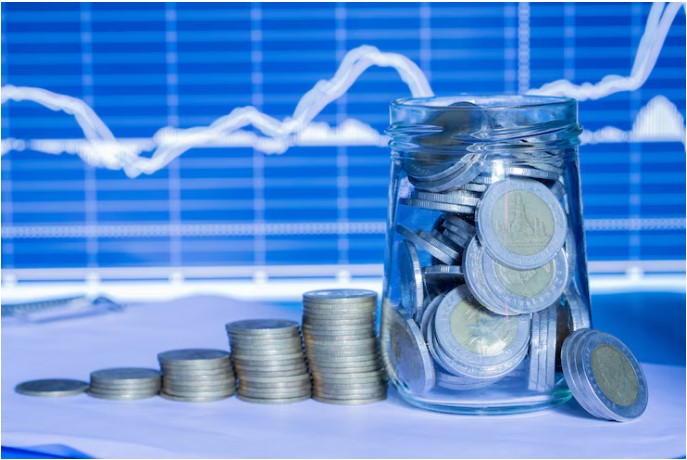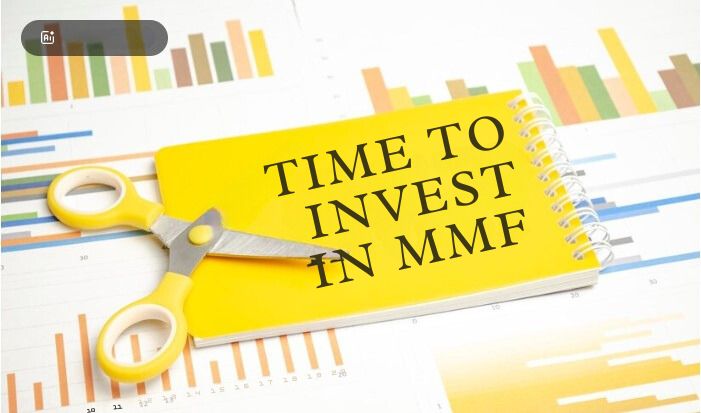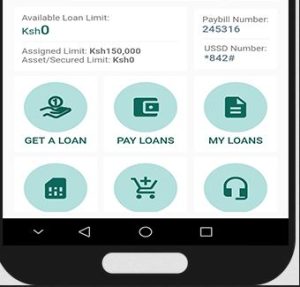The Money Market Fund has spread like wildfire nationwide, so many individuals are looking for its investment avenues. However, there is still an information gap that has left some potential investors scared to mince money from these avenues.
Money Market Funds are low-risk investment funds that invest in liquid and short-term instruments. Depending on the MMF you invest in, you can earn interest as high as 18% with a 15% withholding tax.
If you’re uncertain how a Money Market Fund works and whether it is a safe investment vehicle, this guide is ideal for you. Here is what it covers:
- The ABCs of Money Market Fund
- The Best Money Market Funds in Kenya In terms of Interest Rates
- 5 Best Money Market Funds in Kenya Based On Deposit Base
- The Difference Between Money Market Funds and Saccos
- Factors to consider when choosing a Money Market Fund
- Commonly asked questions

Let’s delve in!
Introduction To Money Market Funds
Before putting your money in a Money Market Fund, you must familiarize yourself with how they work and when to leverage them. Below are the fundamentals of Money Market Funds:
What Is a Money Market Fund?
A Money Market Fund is a mutual fund that invests in multiple low-risk and short-term assets. Where Do MMFs Invest Their Money? MMFs invest in assets from different classes, including;
- Treasury Bills: Commonly known as T-bills, Treasury bills refer to short-term borrowing instruments that the government issues through the Central Bank of Kenya.
- Commercial Paper: These are short-term borrowing instruments that corporations issue to fund their cash flow needs.
- Fixed Deposits: Banks offer financial instruments that earn interest at maturity. Note that the interest in this case is higher than the regular savings account.
How Do Money Market Funds Work?
Before you invest your hard-earned money into a Money Market Fund, you should learn where they put your money and who manages it. This will help you determine the safety of your money.
So, how do Money Market Funds operate?
There are four parties involved in your MMF investment. They include the following:
(Note that you are the investor in this case, so I’ll be referring to you that way)
1. Fund Manager: This is the registered company that offers you MMF investment opportunities, for example, Sanlam, CIC, Cytonn, and Britam. The Capital Markets Authority licenses the fund manager to provide investment instruments.
What’s the role of the fund manager in your MMF investment? The fund manager develops an investment portfolio and implements the investment plans on your behalf and other investors.
2. The Custodian: This is the party that keeps money for the investors before the fund manager can make an investment decision. Typically, custodians are bank institutions in Kenya.
Once, your fund manager makes an investment decision, the custodian or bank releases the money to go into the investment vehicles, for example, treasury bills and fixed deposits.
3. Trustee: Accountability is vital anytime and anywhere money is involved. And with the widespread MMF adoption, the amount of money involved is too high to risk losses.
Thanks to the trustee, they keep your fund manager and custodian accountable to ensure that your money is well-handled. Simply put, the trustee is your MMF watchdog!
4. Auditor: The auditor evaluates MMFs’ financial statements, providing comprehensive data on each. This helps you assess whether a fund meets your needs and its viability.
A good example is the collective investment schemes data circulating on social media covering the interest yield of different MMFs, the deposit base, and investment vehicles.
What do you need to open a Money Market Fund?
To open a Money Market Fund, you need the following:
1. National ID or Passport
2. KRA PIN
3. Bank account details
An agent will guide you through the entire process until you have an active account.
Pros and Cons of Money Market Funds

All investments have their advantages and disadvantages. Below are the pros and cons of putting your hard-earned money into a Money Market Fund
Pros of MMF
Why Should You Invest In Money Market Funds?
1. Highly Liquid and Accessible
Having your money stashed or preserved in an account that you have little control over can be distressing. Fortunately, this is not the case with Money Market Funds, the fund manager allows you to access your money anytime.
Additionally, you can withdraw your money from an MMF within 24 to 72 hours. You don’t have to rush to the bank to make this transaction or sign several papers as is the norm of traditional banking.
2. Low-Risk Investment Option
Whether you are looking for capital preservation or investment opportunity, you must choose a reliable option so your money doesn’t go down the drain. Money Market Fund is one such choice that invests your money in low-risk vehicles to ensure you don’t lose money.
Although you might not make high-yield returns, your money is safer in this investment than in traditional options.
3. Transparency
Effective investments rely on data availability, hence having access to the MMF’s information allows investors to leverage it. You don’t have to work in Fund management to know what’s happening; you can obtain an MMF’s information.
All you have to do is visit the Capital Market Authority’s website and review their reports. This will provide you with a deposit base, investment portfolio, and percentage returns of your MMF.
4. High Interest Yield
The standard savings account offers low interest rates of around 3%. According to Trading Economics, the inflation rate as of April 2024 was 5%. This means that traditional savings accounts offer a lower rate than inflation, meaning your money loses its value over time.
In contrast, Money Market Funds offer 2 to 3.5 times the interest of the inflation rate. The current yield rates are ranging between 10% and 18%. Be on the lookout for other favorable choices you can invest in because they keep coming up daily!
5. Hustle-Free Investments
One of the best things about MMF investments is that you don’t have to choose an investment strategy every day for your money. It’s a hustle-free investment journey where the fund manager makes low-risk decisions to multiply your money.
All you need is to do the math to determine how much money you should invest in the MMF to get your desired returns. For instance, if your MMF offers between 12% to 15% yield interest and you want to earn 100k yearly you should invest around Kshs 980,392 when working with a 12% figure.
Cons Of MMF
Are MMFs Risky?
Can you lose Your Money?
Although Money Market Funds are considered one of the safest investments, it also has disadvantages. Here are some of the cons of investing in MMFs:
1. Fluctuating Returns
Your fund manager’s investments’ performance determines how much interest you’ll earn. If your fund manager makes high returns, they give you high interest but if they make low returns you earn low interest.
That’s why you witness constant changes in the interest yield reports. You can visit our social platforms for a weekly update on the interests of different Money Market Funds every Monday morning.
This will help you choose the most lucrative fund manager.
2. MMFs Are Not Government Insured
You’ve heard financial institutions collapsing and members’ money going down the drain. Although the Money Market Fund investment is considered low-risk, it places you in a vulnerable situation.
Reason?
The Kenya Deposit Insurance Corporation (KDIC) does not insure your investment. Hence, if the fund manager mismanages your funds or collapses, you might lose your money.
Top 10 Money Market Funds In Kenya (Based On Interest Rates)

What Are the Best Money Market Funds in Kenya In terms of Interest Rates? Here’s a list and a small highlight on the top 10 indicating their interest rates as of May 22nd:
| Fund Position | Fund Manager | Annual Rate |
| 1. | Lofty-Corban Money Market Fund | 18.3% |
| 2. | Etica Money Market Fund | 18.1% |
| 3. | Cytonn Money Market Fund | 17.1% |
| 4. | GenAfrica Money Market Fund | 16.8% |
| 5. | Nabo Africa Money Market Fund | 16.5% |
| 6. | Kuza Money Market Fund | 16.1% |
| 7. | Enwealth Money Market Fund | 16.1% |
| 8. | Apollo Money Market Fund | 15.9% |
| 9. | GenCap Hela Imara Money Market Fund | 15.6% |
| 10. | Madison Money Market Fund | 15.5% |
Top 5 Money Market Funds In Kenya (Based On Deposit Base)
What are the 5 Best Money Market Funds in Kenya Based On Deposit Base?
Here are the top 5 MMFs according to CMA’s collective-investment schemes reports for the first quarter of 2024.
| Name | Mar 2024 | Dec 2023 | % Change | Market Share | |
| 1. | CIC Unit Trust Scheme | 61,916,244,990 | 63,331,606,411 | -2.2% | 27.5% |
| 2. | NCBA Unit Trust Funds | 31,287,766,195 | 30,934,377,888 | 1.1% | 13.9% |
| 3. | British American Unit Trust Scheme | 30,029,479,906 | 31,707,080,884 | -5.3% | 13.3% |
| 4. | Sanlam Unit Trust Scheme | 29,699,248,434 | 25,126,658,990 | 18.2% | 13.2% |
| 5. | ICEA Unit Trust Scheme | 15,654,820,623 | 15,953,284,269 | -1.9% | 6.9% |
Money Market Funds Vs. Saccos
What Is The Difference Between Money Market Funds and Saccos?
MMFs and SACCOs have gained much popularity in this era for people looking forward to saving funds for different purposes.
Should you fix your savings in a Money Market Fund or a Savings and Credit Cooperative (Sacco)?
Or better still, should you preserve your hard-earned money in both platforms?
Let’s find out which is the most suitable, depending on your needs by comparing the two.
1. Funds Accessibility
How easily can you withdraw your money from the two savings accounts?
A Money Market Fund allows you to withdraw your savings anytime you want. This process usually takes between 24 to 96 working hours to withdraw your money.
On the contrary saving in BOSA or Back Office Service Activity allows you to withdraw your savings when retiring as a SACCO member.
So, it takes longer compared to the Money Market Fund.
2. Credit Access
Can you apply for a loan when saving in MMFs and SACCOs?
Money Market Funds do not lend to their members. So, regardless of the amount of cash you’ve saved up in your MMF, you can’t expect them to extend credit to you.
Quite the reverse, SACCOs provide their members with loans at a better interest rate (2% to 3%) than standard lending institutes.
3. Funds Security
How safe is your money with MMF and SACCO?
When saving in a Money Market Fund, your funds’ safety is overseen by the CMA(Capital Markets Authority).
SASRA or Societies Regulatory Authority usually regulates if you’re saving in SACCOs.
4. Income Generation.
How do MMFs and SACCOs generate returns to pay your savings interest?
Money Market Funds usually invest in low-risk investment vehicles such as Treasury bills, short-term corporate debt, and fixed deposits.
SACCOs mainly rely on issuing loans to their members at an interest. This allows them to generate income.
5. Returns Taxation.
Money Market Funds and SACCOs allow you to enjoy good returns. However, you’re required to pay taxes in both cases.
You can expect to be taxed 15% of your earnings in an MMF. Now you know why you don’t receive the exact 10% interest yield of your savings.
On the contrary, the government usually taxes 5% of your dividend income in SACCOs.
6. Suitable Function.
How best can you utilize a Money Market Fund or SACCO?
Money Market Funds are the most suitable if you are looking for a capital preservation solution or emergency fund. Reason?
Although your money does not grow at a high rate, it keeps up with the inflation rate, helping you maintain your savings value.
SACCOs are great if you’re looking for a long-term income-generating vehicle. Moreover, you enjoy access to credit at a good interest rate.
Factors To Consider When Choosing a Money Market Fund
From Sanlam, and CIC, to Etica, numerous Money Market Fund managers exist in Kenya, some with high returns and others with moderate yield rates.
So, how do you choose the best MMF for our needs?
Here are factors to consider before investing in Money Market Funds
1. Legal Compliance
Does the Money Market Fund manager comply with the government’s legal requirements? You need to find out whether the MMF is registered by the Capital Markets Authority or the CMA.
This will guarantee your money a level of safety. Beware of online scammers who pose as Money Market Fund managers to steal your hard-earned money.
2. Performance Records
The records of a Money Market Fund will give you an idea of what to expect. You’ll learn the range of returns they offer to their clients.
It also helps you identify whether they are steady in this investment. Don’t settle for a fund manager that one time has MMF and the other time they offer Fixed deposits.
3. Consistency
The certain way to determine whether an investment is viable or not is its consistency. A Money Market Fund that has existed for decades is more likely to succeed than the one that is 5 years old.
Reason?
The one with decades of experience in MMF investments knows how best to multiply and protect your money. The new one may struggle to identify low-risk opportunities, risking your funds.
4. Portfolio and Average Annual Return Rates
It’s easy to get lured by high returns, however, you should be cautious. More returns are not always a sign of good management.
If a fund manager provides extremely high returns than the rest of the competitors, evaluate where they put your money. They are probably investing in a high-risk portfolio, endangering your funds.
5. Associated Costs
Fund managers charge investors management and withdrawal fees. Some of these MMFs do not disclose the actual payments, hence you must enquire to evaluate whether it’s a profitable choice.
Normally, the management fees should be 2% of the invested funds. Additionally, the withdrawal charges vary between 1% to 1.5% of the invested amount.
6. Ease of Use and Access
MMFs give minimal returns compared to starting a business, hence you don’t want another 8 to 5 on your schedule. You need a less stressful fund manager that allows you to invest and access your funds easily.
So start by identifying the process of opening the Money Market Fund, the initial investment amount, and the procedure to top up. Finally, learn how to withdraw your funds from the account.
Ensure you choose a simple and easy-to-use Money Market Fund.
Also Read:
- 10 Best Online Investment Opportunities in Kenya 2024!
- 2024 Guide on How to Invest in Treasury Bonds and Bills in Kenya
Frequently Asked Questions
1. Which Is The Best Money Market Fund In Kenya?
The best Money Market Fund is the one that matches your financial goals. Someone who wants to build an emergency fund will assess fund managers differently compared to an individual who wants high returns.
Nevertheless, there are key factors you should consider before joining any MMF, for instance, your fund’s security, liquidity, accessibility, and risk level.
2. How To Join The Money Market In Kenya?
To join a Money Market Fund, you need a National ID, KRA PIN, and a bank account. Most funds handle the process online where an agent guides you.
One of the MMFs I’ve had an interaction with requests you to send the national ID front and back side, bank statement, and KRA PIN certificate via email.
These details help them process your member number, and create an account for you before directing you to reset your password.
3. How Much Can I Earn From MMF In Kenya?
The current yield interest rate ranges between 9% and 18%. However, you must factor in the management fee and a withholding tax of 15% deducted.
So, ensure you get all the figures correct before investing in any Money Market Funds.
4. What Is The Highest-Paying MMF in Kenya?
The highest-paying MMF in Kenya presently is the Lofty-Corban Money Market Fund with an effective annual rate of 18.3%.
Ready To Open a Money Market Fund?

Now that you know how the Money Market Fund works, are you ready to open an account?
What’s your financial goal using a Money Market Fund and not a different fund?
Feel free to drop your MMF question on any of Cent Warrior’s social media platforms or email us for professional guidance.
We will address any inquiry you have regarding right away!







